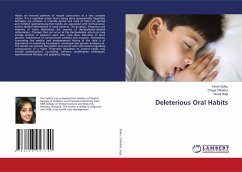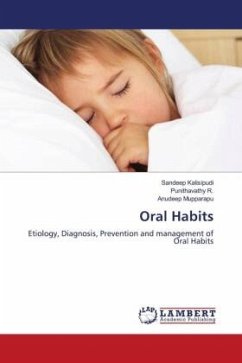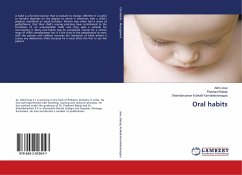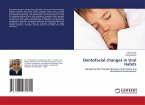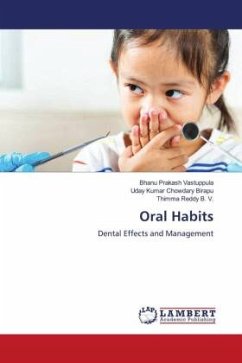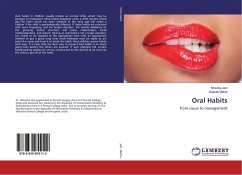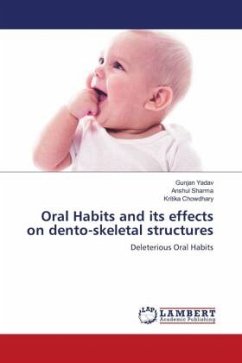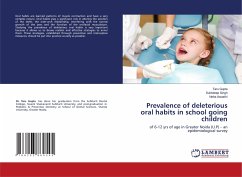Habits are learned patterns of muscle contraction of a very complex nature. It is a repetitive action that is being done automatically. Repetitive behaviors are common in infantile period and most of them are started and finished spontaneously.Oral habits are associated with dentoalveolar and/or skeletal deformation in some patients. The duration, frequency and intensity of habit determines the severity of dentoalveolar-skeletal deformation. Changes that can occur to the dentoalveolar structures may include anterior or posterior open bite, cross bites, alteration of bone growth, interference of normal tooth position and eruption. Information concerning the medical and developmental history of the child is of importance in evaluating his physical, emotional and genetic background. The dentist can provide the patient and parent with information regarding consequences of a habit. Treatment modalities to control habits may include patient/parent counseling, behavior modification techniques, myofunctional therapy, and appliance therapy.
Bitte wählen Sie Ihr Anliegen aus.
Rechnungen
Retourenschein anfordern
Bestellstatus
Storno

